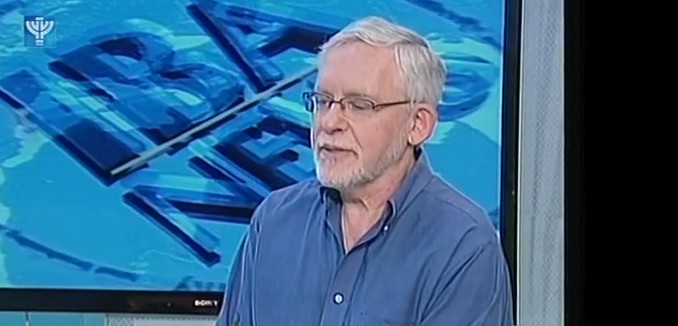In a profile published today of former Associated Press (AP) reporter Mark Lavie, the veteran journalist admitted that the “‘The Media’s’ response to Israel does not tolerate the truth if it is good.”
Now retired after a 40-year career at NPR, NBC, the CBC and the AP, Lavie has become a critic of reporting generally and reporting on the Middle East specifically. As far as the state of journalism, Lavie says he didn’t leave the field, rather “it left me.”
According to Lavie, who spoke to the Jewish Press, among the contemporary problems with journalism is a focus on speed and disregard of facts.
More broadly and more deeply, Lavie is profoundly pessimistic about the quality of the work put out by AP and most sources of mainstream journalism today. Driven as they are by the Internet’s insatiable appetite for the latest flash, people who call themselves reporters are interested, he says, primarily if not exclusively in speed, not substance.
Perhaps even worse, Lavie provides direct testimony that journalists no longer even pretend that their job is to report facts. Instead, he’s been told by former colleagues, the job of the media is to advocate for those actors on the world stage that the journalists feel deserve support – to “speak truth to power.”
But that’s not journalism, according to Lavie: “The job of journalists is to take a significant story and make it interesting, by explaining it and putting it in context.”
In Lavie’s own career, the episode that frustrates him the most is a story he had done on a peace plan proposed by Israel in 2008 that was canned by his editors at the AP, which he calls “the biggest journalistic fiasco I’ve ever been involved in, and my career stretches back to 1963.”
Lavie is not alone in his criticism of the AP. He has been joined by former AP reporter Matti Friedman, who wrote that the interaction between United Nations agencies, NGOs, and journalists in the Middle East formed a society where “a distaste for Israel has come to be something between an acceptable prejudice and a prerequisite for entry.”
Lavie reacted sharply to any suggestion that he was upset by coverage of Israel because of his religion. “I was not sensitive to [biased coverage] because I am Jewish, I was sensitive to it because I’m a journalist.”
As noted in the article, Lavie wrote Why Everything Reported from Gaza is Crazy Twisted, which was published in the August 2014 issue of The Tower Magazine. In the article, Lavie lamented that the truth about reporting is that significant details are often omitted, preventing the public from getting the whole picture.
Journalists, of course, won’t tell you what you’re missing in the coverage. Their anchors or editors won’t tell you why large parts of the story are colored a certain way or taken from a certain angle. They don’t want to put their reporters’ lives at risk.
This is the main reason that video and pictures seem to flow freely out of Gaza. But critical elements of the story itself can’t, and neither can all the pictures and video. It gives the impression that the story is being covered, when only part of it—sometimes a small part—is being covered.
All we can do is keep this in mind: the world does not operate according to our democratic standards of freedom of the press. What we see may not be the whole truth. In fact, you can be sure it isn’t.
[Photo: IBA News VOD / YouTube ]




